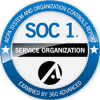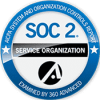Care management is a collaborative approach to healthcare that focuses on coordinating and managing care to ensure that individuals receive the appropriate care in the most appropriate setting. By personalizing a plan of care according to each individual’s needs, care management enhances care quality, improves health outcomes, and optimizes the use of healthcare resources, particularly for individuals with complex medical needs.
Effective care management requires organizations to focus on the bigger picture of patient care, treating the “whole person” instead of a specific condition. This comprehensive approach brings together an entire team of providers and community-based organizations to collaborate on a coordinated plan of care that addresses all the patient’s needs.
Page Content
Whole-Person Care Management for Complex Populations
Complex and underserved populations—including those with chronic conditions and those at high risk of hospitalizations or other adverse health outcomes—benefit from a holistic approach to care that takes into account not just physical health, but the unique behavioral and social determinants that prevent even the best care from being effective.
Rather than simply treating specific symptoms or diseases, this person-centered approach to care management recognizes that health and well-being are influenced by a range of factors, including biological, psychological, social, and spiritual dimensions, and aims to address all issues in a plan of care that promotes health equity as well as overall health and quality of life.
Benefits of Care Management
Care management facilitates collaboration across payers, providers, and community resources to address the entirety of patient needs. This whole-person care approach has a number of benefits:
- Ensures transparency and a real-time, holistic view of the patient across the entire team to support more effective decision-making and reduce unnecessary and redundant care
- Enables collaboration and automation with the unification of workflows and a more efficient orchestration of care across the care continuum to smooth transitions and manage conditions
- Personalizes care to meet the unique medical, behavioral, and psycho-social needs of each individual
- Improves efficiency and reduces costs by identifying risk factors and intervening early to improve outcomes and lower risk
- Optimizes quality performance to reduce risk, improve outcomes, and increase incentive payments
- Empowers and engages patients to make more informed decisions and improve treatment adherence, ultimately leading to better outcomes
How to Effectively Manage Care
Extending care management beyond simply the delivery of care requires a greater level of project and workflow management to ensure care is delivered in the way it is intended across the continuum of disparate care providers and life circumstances. Care managers manage care in new ways, making sure resources are allocated, assignments are known and understood, and each individual care provider is taking part in a coordinated set of actions that lead to a care outcome within the bigger picture of the individual’s overall health.
In other words, it’s not just information sharing that matters—it is the proactive identification of what the care teams should be doing together to achieve the desired outcome that will really move the needle on care quality. To be successful:
- Integrate with key systems and aggregate data to enhance processes and workflows, reduce administrative pain, and deliver the right information is available to the right people at the right time for more informed care
- Collaborate using a single plan of care to ensure that each provider is fully informed and working together toward common goals and prevent duplicate and unnecessary care
- Partner with community organizations to address the behavioral and social determinants that negatively impact health
- Identify rising-risk populations for early intervention to mitigate risk and improve outcomes
- Analyze and learn from data to find and implement the most successful and cost-effective treatment plans
- Engage with patients so they are partners in their own care to improve self-management and inspire a sense of responsibility for their own well-being
A Proven Care Management Solution
InfoMC has more than 25 years experience integrating behavioral health with medical and social determinants to improve how organizations manage care. Preconfigured for the Special Needs Plan (SNP) model of care, our Incedo enterprise care management solution helps you orchestrate comprehensive, person-centered whole-person care for complex populations. We help you bring together providers across the community to easily and efficiently remove barriers, support health equity, and address all issues that impact health.
To learn more about how our solution automates and personalizes patient journeys to help you improve outcomes and member experience and manage the total cost of care, please contact us today.








